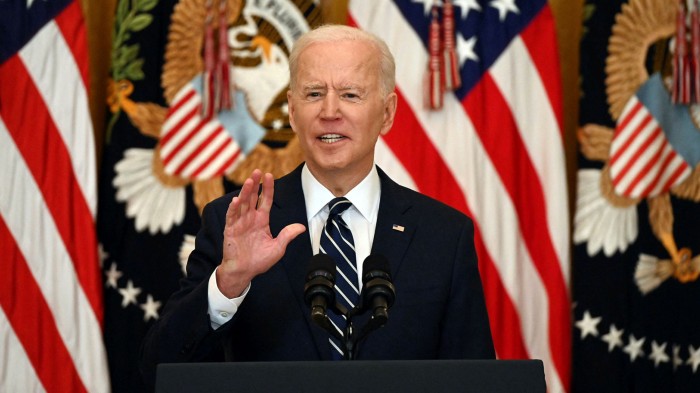Stakeholder capitalism must find ways to hold management to account


Roula Khalaf, Editor of the FT, selects her favourite stories in this weekly newsletter.
At the outset of the Covid-19 pandemic many assumed that the surge of interest in stakeholder capitalism would go into reverse. And, for pandemic-hit companies with their backs to the wall, the interests of customers, employees, suppliers and society were bound to be trampled in the sauve qui peut bid for survival.
Yet the much-discussed call by BlackRock’s Larry Fink for companies to link corporate purpose to all their stakeholders looks with hindsight to have been politically acute. While many question whether this commitment is more than rhetorical, there can be no doubt that big business and institutional investors are under increasing pressure on this issue, with US president Joe Biden having vowed last July to “put an end to the era of shareholder capitalism”. And the British institutions that shunned the Deliveroo flotation last week were clearly serious in their objections to its treatment of workers and dual-voting structure.
The pressure is admittedly not all one way — witness the recent ousting of the chief executive of French food group Danone. Yet Milton Friedman’s doctrine that the only purpose of the corporation is to make money for its shareholders sits uneasily with current concerns not just about coronavirus but climate change, wage stagnation, inequality and diversity.
More fundamentally, the pandemic has demonstrated that a shareholder primacy model of capitalism that emerged in the 19th century is wholly inappropriate for 21st-century conditions. That model reflected the belief that the owner, the shareholder, was the ultimate risk-taker, entitled to the residual profits of the company when all other stakeholder claims had been satisfied.
To take today’s most obvious examples, workers and patients in privately owned care homes are at infinitely greater risk than outside shareholders in those homes. Many skilled workers who have been fired during the pandemic have lost not only their jobs but human capital — skills that were specific to the firm that employed them.
At the same time corporate bankruptcy is far more dangerous for suppliers than for institutional asset owners who spread risk across large, diversified portfolios. In anglophone economies, the commitment to a short-term, narrowly financial definition of shareholder value has helped undermine corporate resilience by encouraging excessive dividends and share buybacks that weaken balance sheets.
Yet a shift to a stakeholder model raises difficult questions about how stakeholders can hold management to account. Existing stakeholder models incorporate worker-directors. This gives priority to a single stakeholder interest that may conflict with those of other stakeholders. And there is a clear risk that widening the board’s responsibility will reduce management accountability.
The UK provides an interesting case study. Section 172 of the 2006 Companies Act requires directors to promote a company’s success while having regard to the likely long-term consequences of any decision, the interests of employees, the need to foster business relationships with suppliers, customers and others, and the impact of the company’s operations on the environment. (Disclosure: I was on the steering group of the UK Company Law Review which provided the blueprint for the 2006 Act.)
This has proved ineffectual. First, because long termism has been subverted by a short-termist boardroom bonus culture. Meanwhile capital market pressures and a hostile takeover discipline ensure that short-term performance trumps stakeholder responsibility, with a general stakeholder reluctance to seek remedies in court.
For stakeholder capitalism to work, efforts to extend the time horizons of incentive schemes must be supplemented by metrics relating to the environmental, social and governance agenda. Shareholders should be given greater power to restrain takeover activity, which does not always deliver value. Existing initiatives to improve reporting on human capital, employee safety and sustainability should be strengthened so that shareholders can engage more effectively with investee companies on ESG issues.
But there is a limit to what boards and shareholders alone can do. Leo Strine, former chief justice of the Delaware supreme court, supports modernising the 1930s New Deal for a 21st century economy to protect key stakeholders through measures such as curbs on the gig economy, enhanced consumer protection, stronger antitrust law and carbon taxes. With a Biden presidency and a rapidly changing political climate in the rich world, that may now be within the range of the possible.
Letters in response to this column:
Stakeholder capitalism recalls Nero’s fiddling / From Professor Louis Brennan, Trinity Business School, Trinity College, Dublin, Dublin, Ireland
The pitfalls of capitalism’s unfortunate marriage / From Hakan Jankensgard, Associate Professor of Corporate Finance, Lund University, Lund, Sweden
Comments